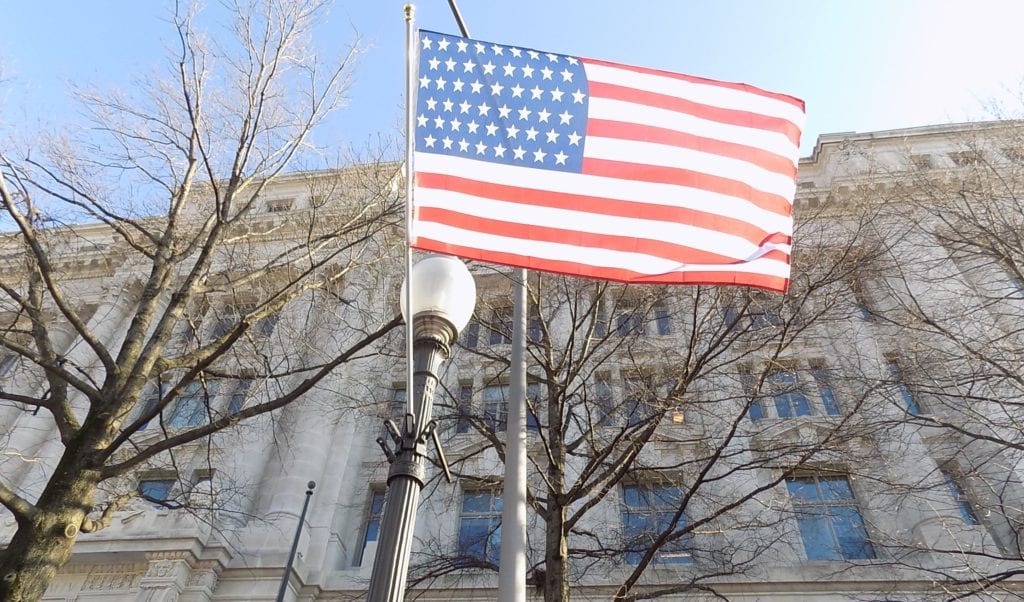D.C. Statehood in Congress: a Possibility or a Ploy?
By • March 22, 2021 0 941

“The time to end the disenfranchisement of more than 700,000 taxpaying Americans is now. The time for D.C. statehood is now,” D.C. Mayor Muriel Bowser told District residents and members of the House Committee on Oversight and Reform — in person and online — at a hearing on Monday, March 22, concerning the Washington, D.C. Admission Act. “With the passage of H.R. 51 in the 116thCongress, D.C. came closer than ever before to statehood. Now, we carry that momentum into Monday’s hearing.”
The statehood legislation, written by D.C.’s longtime Congressional Del. Eleanor Holmes Norton (D), would shrink the federal District of Columbia — required in the U.S. Constitution — to a two-square-mile enclave of federal buildings. The newly formed District would include the White House, the Capitol and the Supreme Court. All the rest of what is now D.C. would become a 51ststate with the proposed name State of Washington, Douglass Commonwealth, in honor of abolitionist Frederick Douglass.
“It’s not just a slogan on a license plate anymore,” said Meagan Hatcher-Mays, a former Norton aide who now leads statehood advocacy efforts at the Indivisible Project, a network of liberal activist groups. “There has been a rapid ‘un-fringing’ of the D.C. statehood issue,” she said.
“It is the unfinished business of the civil rights era,” said Wade Henderson, who leads the Leadership Conference on Civil and Human Rights.
But the Oversight Committee’s ranking member, James Comer (R-Kentucky), called the proposal “a Democratic ploy and a power grab,” its political momentum driven by the politics of the day.
According to a March 21 Washington Post article: “The jolt of momentum stems in part from an increasingly urgent desire among Democrats to act while they have power to erode what they see as Republican structural advantages in the nation’s democracy — including the Senate. D.C. statehood would probably result in two additional Democratic senators, shifting the dynamic in a chamber where members from conservative, rural states can wield disproportionate influence over legislation, federal courts and presidential nominations.” The proposed bill would also give the District three electoral votes.
Republicans on the committee objected. If H.R. 51 passes, it becomes a precedent to make statehood by legislation, Comer noted, asking what is to prevent other cities in other states from declaring statehood.
“This is only about the District,” argued Bowser. “It’s about giving the franchise to D.C. that all citizens in every state have as a right.”
But other Republicans proposed that residents of the District could have the vote and full representation by giving the territory to be designated as the 51ststate back to Maryland. Maryland originally granted it to the federal government for the purpose of being the seat of government, not to be another state.
“No one in D.C. or Maryland would accept that,” Helen Mendosa, a recently retired lobbyist from Adams Morgan, told The Georgetowner as she demonstrated for D.C. statehood in Dupont Circle early Monday morning. “The District has a unique history and identity that all those who grew up here share. We are not at all the same as Maryland and we don’t want conservatives in Congress and other states telling D.C. what to do,” she said.
At press time, the hearing was still going on. When the 117th Congress will take up H.R. 51 for a vote is unclear. Constitutional experts from the Heritage Foundation and the Congressional Research Office testified that the constitutionality of creating a new state out of a federal district is unprecedented; experts dispute its viability and even whether the Supreme Court would accept the question as a case.

